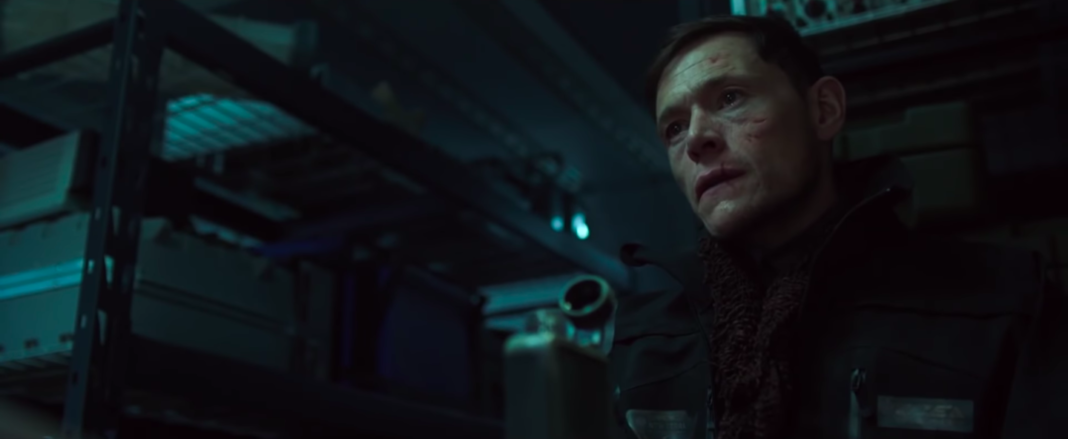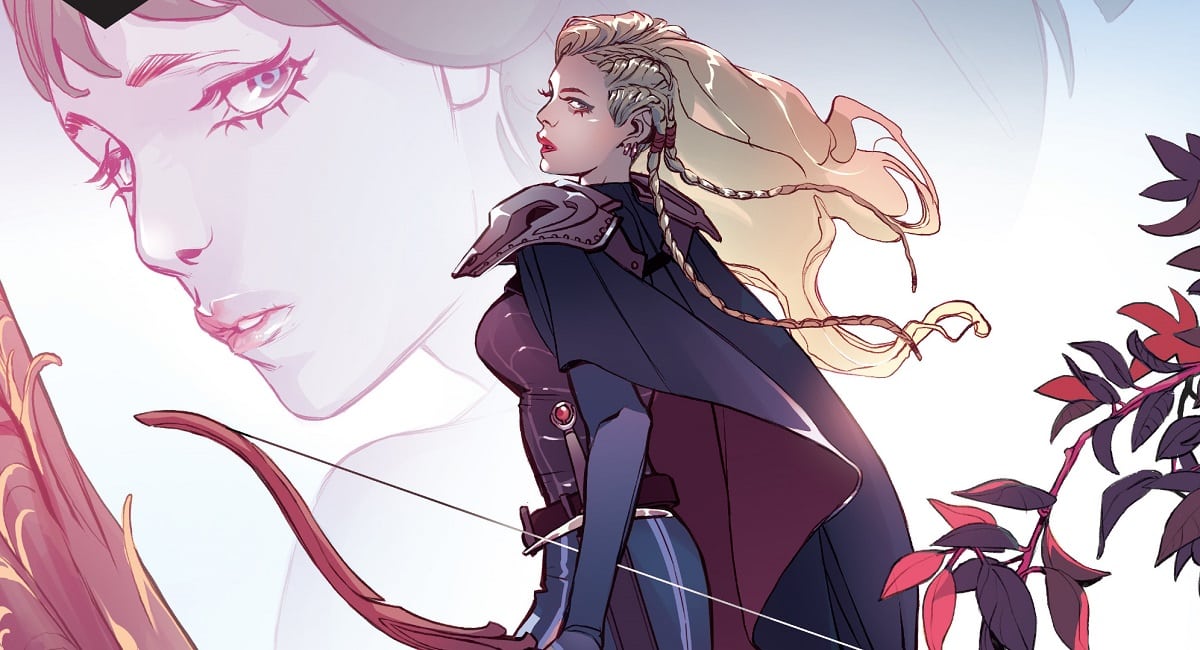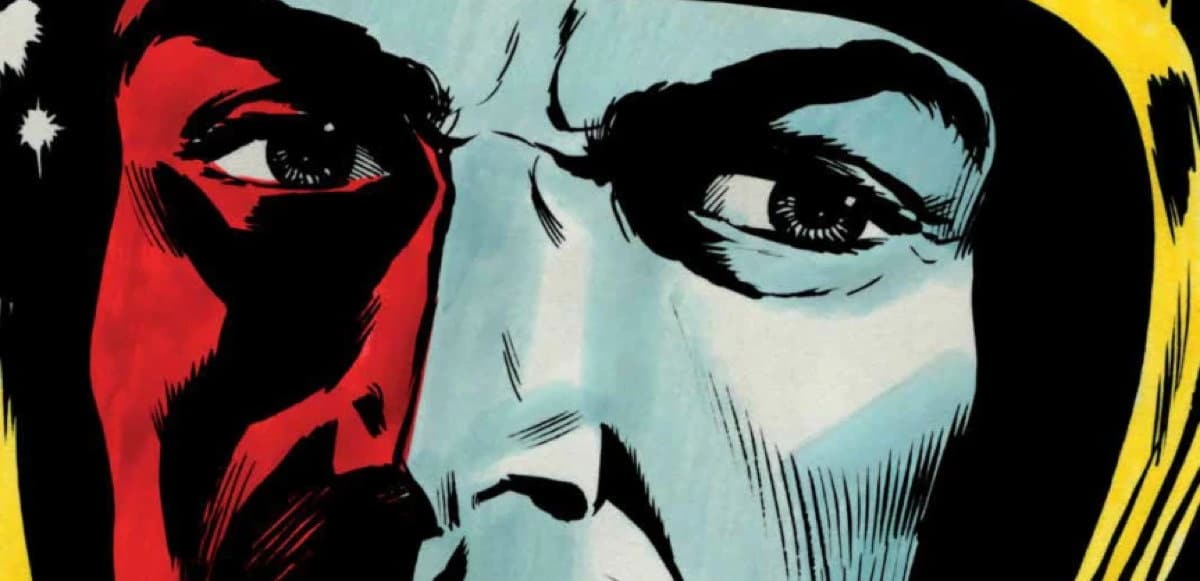By Carolyn Hinds
With season 4 of hit Sci-Fi series The Expanse now available on Amazon Prime Video, I jumped at the opportunity to attend a press junket with the creative team and cast to discuss all of the new and exciting characters and story developments that fans are introduced to in the new season. In my first interview session, I spoke with Ty Franck, half of the writing duo “James S.A. Corey” (the pen name Franck shares with Daniel Abraham) — author of The Expanse novels — and actor Burn Gorman, who plays Adolphus Murtry.
Since the beginning of the series, there have been essentially two main antagonists that the crew go up against, one human and the other biological (for lack of a better word). In the first few seasons, it was the Protomolecule. Now we have Ilus, an entire planet that’s trying to kill the crew; the Belters, its new settlers; and members of the REC.
Each season the crew of the Rocinante are faced with seemingly insurmountable odds as humans and nature throw up more and more obstacles in their path. One of those human obstacles is Murtry, chief of security for Royal Charter Energy, who has been sent to Ilus to secure the planet and its highly sought-after lithium deposits.
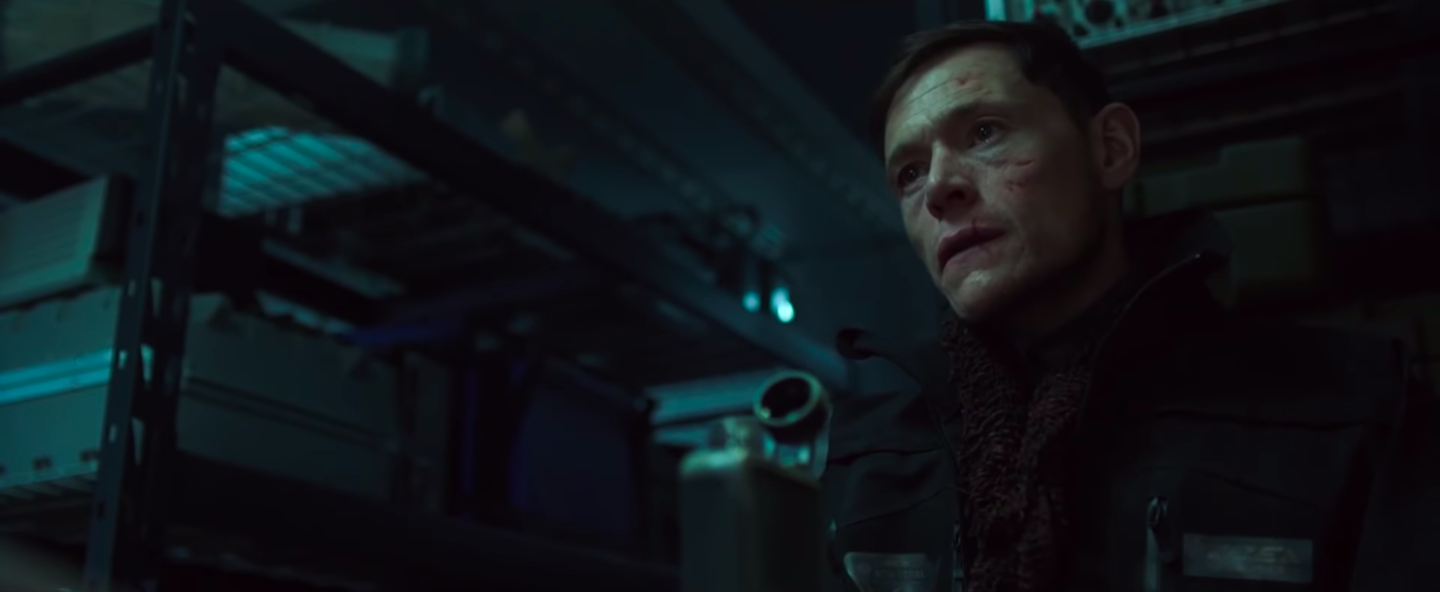
As a leader, Murtry is not accustomed to people challenging him, but Amos (Wes Chatham) and Holden (Steven Strait) do just that.
When asked about Amos’s ability to read Murtry as the threat, actor Burn Gorman said, “We talked a little bit before this afternoon about when you go into this new situation in a kind of wild west scenario ostensibly where there are no strict rules. There’s no law [and] order authority set up there, and for somebody like Murtry, going in he sees that this is an opportunity then to become the law. And I feel like Amos and Holden quite quickly call him on that and say, ‘This isn’t how it’s gonna be, you know. And if you are going to set yourself up as an authority figure, it has to be under the auspices of an ordered society that we come from. You have to be accountable.'”
He added, “And I think Murtry isn’t used to being accountable, in particular in these new situations where he gets sent in as the tip of the spear as it were.”
Being in a position of authority in a situation where things such as hierarchy and laws have not been formally established, Murtry is in a unique position to finally exert his dominance and achieve his own personal agendas in a new way.
“We also talked about the fact that it’s an awfully long way from home, you know, and I feel like… Honestly, the way I approached the character was that we all have agendas, but one of his agendas is he’s finally going to get paid,” Gorman said. “He’s finally gonna be able to be in a situation where he gets a percentage of what is brought out of that thing. He has an incentive, a financial incentive. That was quite interesting… I don’t know what you think, but before I’ve always seen him as a company man, a military man. But now this is finally his chance to make some money, so he doesn’t want to fuck it up.”

Ty Franck said Murtry is in a season of transition, where he’s received what he believes is his rightful reward for a job well done on behalf of the company.
“The way I see Murtry, the point he’s at in his career is he has been a company man,” Franck told The Beat. “He has spilled a fair amount of blood and he has never gotten what he believes is just recompense for his sacrifice, and now he’s in a situation where he feels like he can finally get all this back pay that he’s owed, if he can control the situation. So, in addition to his regular incentive of protecting his people — which I think has always been true of Murtry — he’s always been very protective of his people, in addition to which a bunch of all his people have already been killed and there’s a certain retribution aspect to that, a certain justice and vengeance aspect to it. On top of all of that, which would have been there anyway, he’s also looking at it as, ‘If I can make this work, I never have to do this again.’”
Besides Holden and his people, Murtry also has to deal with the Belters, a group known for bucking against authority and defending themselves and their way of life against those who seek to take them away. For Murtry — who can best be described as a bigot, as Franck explained — the Belters prove to be a constant stumbling block.
“We certainly hint that that’s who he’s been butting heads with his entire career. In the very first episode, when he’s on the shuttle coming down, he’s talking to the head of the mission and he says, ‘Oh, the last mission I was on, we went to this asteroid and there were Belters squatting there and we had to pay them off.’ [He’s] hinting at this idea that his whole entire career has been going to places where they had the right to do something, Belters were there squatting, you had to run them off… We have a charter, and so he just stops seeing them as people, and sort of just [instead sees them as] the speed bump in the road. The thing that gets in the way of you exercising your legal rights. It’s a bit dehumanizing.”
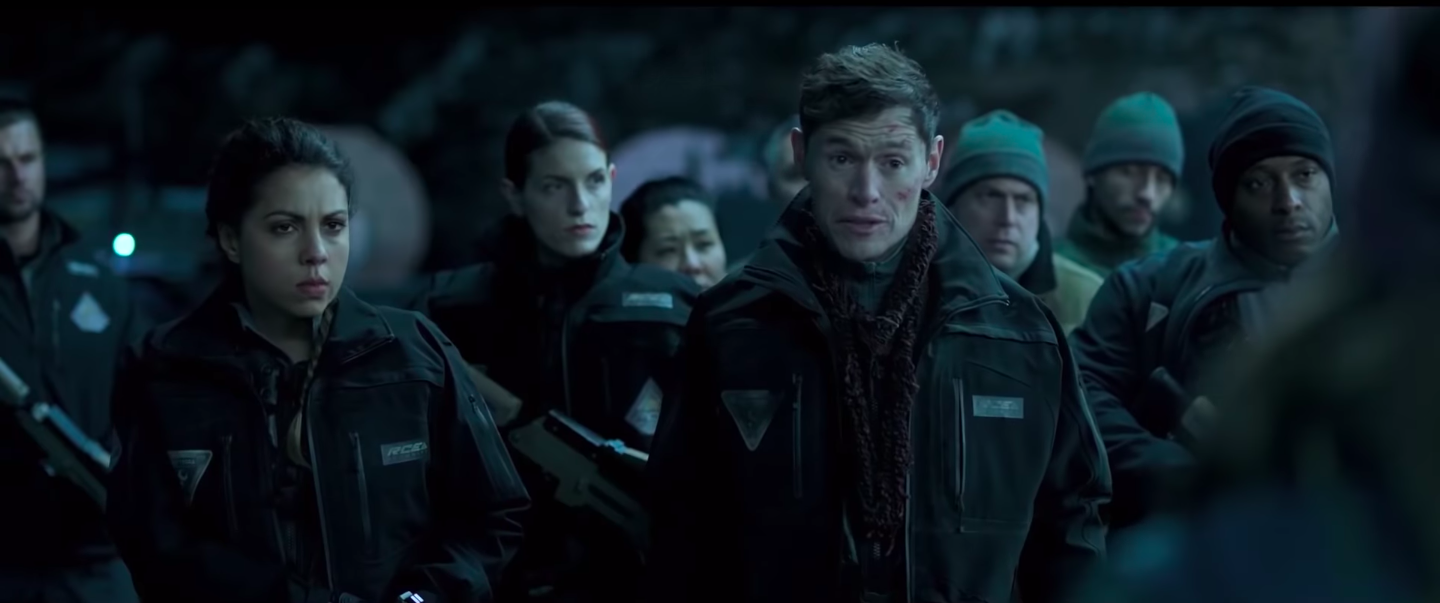
In Ilus, or New Terra — as it’s referred to by Belters — there is a danger that can’t be avoided. It is a world where literally everything that lives on and in it looks to remove whatever threatens it, and what’s more threatening to nature than humans? As Gorman explained, New Terra isn’t only dangerous, it’s also a way for his character to gain the upper hand.
“It’s also a big thing to go through the ring and be on a new planet and suddenly realize there’s this tech there,” he said. “There’s this ancient alien tech, and I think somebody like Murtry would monetize it and start seeing it as, ‘Oh, well not only is there lithium, etc., but there’s this tech we need to get hold of.’ Holden quite quickly comes in with a lot of information about that, doesn’t he? Which is quite interesting. He’s one of the few examples where Murtry listens to Holden’s experience, that he sort of knows what this thing is, which you would do as a good manager.”
Franck said Murtry’s intelligence and ability to see the different angles to a situation and figure out what’s most beneficial to him, is also what makes him a formidable opponent for Holden.
“I think part of what makes Murtry interesting as an antagonist is that he is an intelligent man. He’s not a brute. He’s not thoughtless. When he hears that Holden has access to information, he does react exactly like what you were saying: ‘Oh, really, that’s interesting. I want to hear about that,'” Franck said. “And I think that’s also what makes him dangerous. He’s a man who thinks and plans, figures it out and very quickly puts a boot heel on the Belters in the episodes that we’ve seen, because he very quickly figures out what the threat is. Very quickly moves against that threat in a way that he’s guaranteed to win. I don’t think Murtry is a guy who likes a fair fight. I think he just wants to win… And a guy who’s thoughtful and intelligent and wants to win is a very dangerous opponent.”

In its’ first season, the people of The Expanse were faced with the biggest threat humanity had ever faced: the aforementioned biological alien organism known as the Protomolecule. They also had to deal with the man who sought to learn more about it — and whom I saw as wanting to use it to make a profit — Jules-Pierre Mao (Francois Chau). I asked Franck if the difference between Mao and Murtry was their intentions to use that organism for fiduciary gain.
“I wouldn’t agree that Jules Pierre Mao is about the money. I don’t think that is at all what he was about. What he was about was what he saw as an existential threat to humanity and understanding the scale of that threat to humanity was worth the risk because failing to understand the threat meant extinction. And so, when you are faced with possible extinction… If it’s everyone or if it’s a few million, obviously you sacrifice a few million because that’s less than everyone. From his perspective, and I think that’s what he was looking at,” Franck said. “He was looking at the giant picture, at the existential threat that this new alien technology showing up represents, and the willingness to take almost any risk, almost any sacrifice to truly understand the scope of that threat because he did feel that it was potentially the end of humanity as a species. I think Murtry is much more focused. His scope is smaller.”
Before we concluded our interview, I had to touch on something Franck said regarding the existential crisis the characters had previously faced, and how it connects with a specific storyline with Chrisjen Avasarala (Shohreh Aghdashloo) and her former protégé/new political opponent Nancy Gao (Lily Gao). While we have seen Chrisjen have to go against majors and admirals, this is the first time she’s going against another woman, and one who understands and knows how she works.
Franck said, “I think Chrisjen represents a very pessimistic, conservative view. Gao represents a very optimistic, progressive view and I think as with almost all things the truth is somewhere in between them. And we wanted to show that. The truth is we’ve always shown the alien stuff as a great danger, but it’s also opportunity, and I think in that way Murtry and Gao are on the same side of that page.”
“Murtry sees these giant machines out in the desert and goes, ‘What if I owned that? How much is that machine worth? Can that machine be used for something?'” he adds. “[He] sees the opportunity in it, and I think in a different way — in a political sense — I think that’s what Gao is doing as well. She’s like, ‘There’s 13 hundred worlds; what if we had all of them? What if we put people on them?’
Gorman makes the point that this is something government has always done “Isn’t that what all governments are doing now anyway? It’s about potential, isn’t it?”
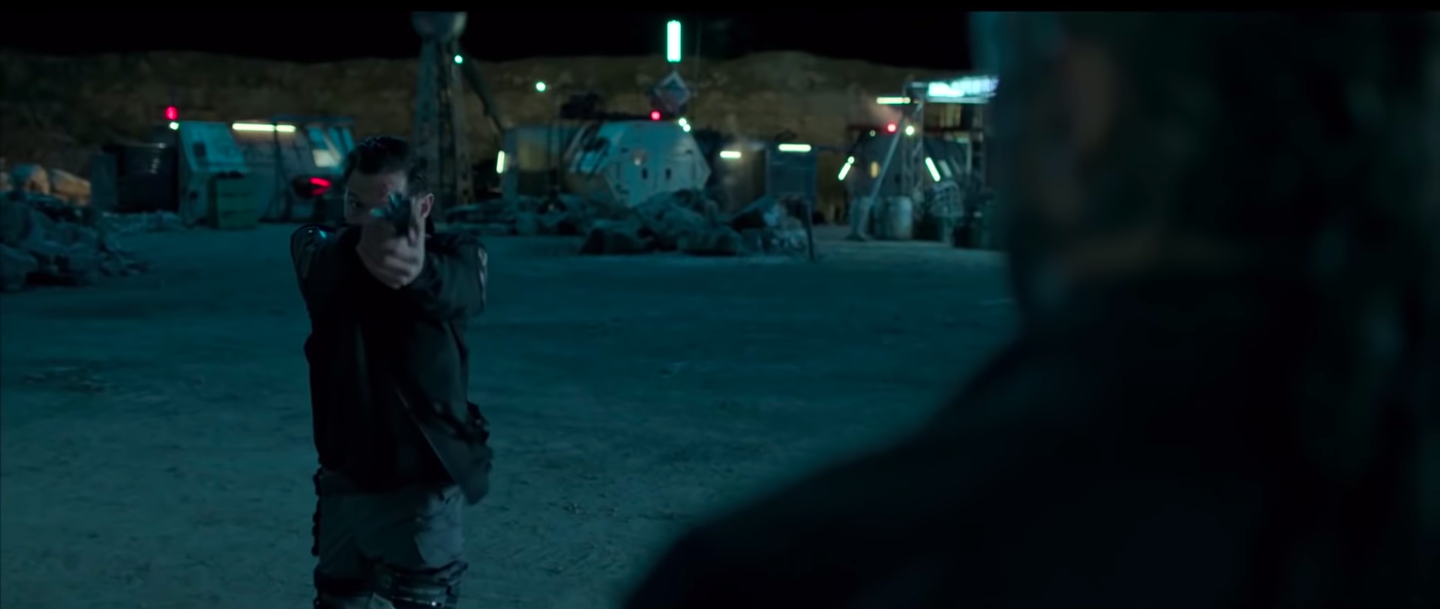
For me, one of the main themes of The Expanse is colonization. It’s in human nature to want to go beyond what we can see, hear and touch. This innate sense of wanting to know and have more has allowed for us to learn more about our planet and the cosmos than our ancestors ever imagined, but the same curiosity has also led to the destruction of entire civilizations, as well as slavery, ethnic suppression, and thousands of wars. For all that we have achieved, humans still keep making the same dangerous mistakes, and this is echoed in the show.
There are certain characters whose hubris have proven to be the biggest stumbling block, causing them to miss the dangers of what’s happening around them, and this is why I think the series is much more than most people give it credit for. Yes, it’s entertaining, but it also teaches about the dangers humans pose to ourselves. Even though The Expanse exists in a fictional world, the lessons that characters like Holden and Chrisjen are trying to teach others apply to real life as well. The saying, “in order to see the future we must look to our past,” is a warning that we never seem to heed, much to our own detriment.
You can see Burn Gorman as Murtry in The Expanse Season 4, which is now available on Amazon Prime. Make sure you check out our review of the new season and stay tuned for more on The Expanse.


